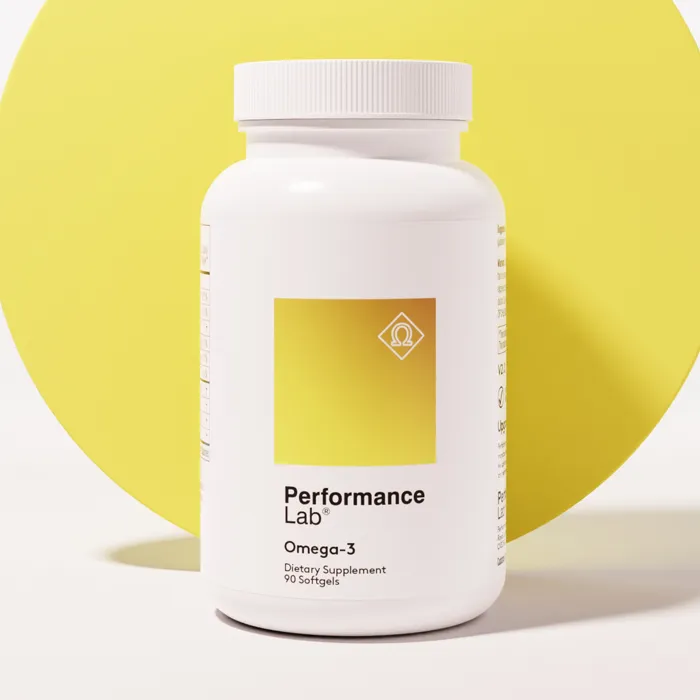If you’ve ever woken up the day after a tough workout and noticed your body is stiff, sore, and burning with every movement, it’s likely you’ve been a victim of delayed onset muscle soreness, or more commonly known as DOMS.
This is a very common condition among bodybuilders, powerlifters, CrossFitters, or anyone else who trains regularly.
DOMS is a clear sign of pushing your body to its limit during a workout. It’s caused by micro muscle tears (a normal process when weight training), which causes inflammation leading to soreness around a day or two after your workout.
While this is a common and normal sign after a hard workout, particularly if you have introduced new weights, movements, or haven’t trained in a while, there are plenty of ways to minimize the harsh symptoms of DOMS.
Firstly, nutrition is key! Eating a well-balanced diet rich in high-quality protein, carbohydrates, fat, and plenty of fruits, vegetables and whole foods will form a solid foundation to support your training and maximize your recovery.
Without the diet in check, there is no hope of minimizing your DOMS!
Once the diet is in check, there are additional ways to minimize the effects of DOMS, such as building a supplement stack.
See this article as a guide to the best 5 supplements for sore muscles – let’s get to it!
Key Takeaways
- Delayed onset muscle soreness (DOMS) is a normal response to hard or unfamiliar training—but you don’t have to suffer through it.
- Nutrition comes first: adequate protein, carbs, healthy fats, and micronutrients lay the foundation for recovery.
- Smart supplementation can further reduce soreness, support muscle repair, and help you bounce back faster between sessions.
- Evidence-backed options include a quality multivitamin, omega-3s, amino acids, and other targeted recovery aids tailored to your training load.

Best 5 Supplements for Sore Muscles
1) Multivitamin
It goes without saying that nutrition takes priority above all else when it comes to striving for a fitness or health goal. A poor diet can often lead to nutrient deficiencies which will not only fail to support your fitness goals but will also fail to support your everyday bodily functions and overall health.
Ensuring you have a well-balanced, healthy diet is key to proving your body with the nutrients it needs to function optimally, particularly if you put your body under additional stress through training.
However, under special circumstances there may be a requirement to include a multivitamin in your supplement regime. Athletes or those who train fairly regularly at a competitive level will have additional nutrient requirements to support the training and recovery demands.
In addition to this, those who follow special diets or have specific dietary requirements may also be lacking certain nutrients as a result. This may necessitate a multivitamin to essentially “cover all the bases”.
Nutrients such as vitamin C, vitamin D, B vitamins, magnesium, calcium, iron, and zinc are just a handful of example nutrients that play a huge role in muscle function, heart health, energy metabolism, immunity, and bone health which is not only vital for the everyday individual, but particularly crucial for athletes and regular gym-goers.
Our top pick is Performance Lab NutriGenesis® Multi , which includes 24 essential vitamins and minerals to support overall health and achieve optimal recovery results.
2) Protein
Protein is made up of amino acids, which are essentially the building blocks for the body, including muscle. During a workout, our muscle fibers tear under the stress of resistance, this then triggers a growth response (hypertrophy).
This is what causes DOMS, so you can see why a protein supplement, and protein intake in general, is absolutely vital for proper muscle recovery. Consuming protein post-workout is probably one of the most recommended nutritional strategies for optimal muscle growth and recovery.
While most people can manage to consume adequate protein through diet alone, a supplement can sometimes be necessary for plant-based folk, or those who want a convenient source of protein soon after completing a workout.
It’s recommended to consume protein throughout the day in regular intervals to ensure proper muscle recovery and muscle protein synthesis (the process of repairing and rebuilding muscle).
This follows on quite nicely to our next supplement recommendation—BCAA!
3) BCAAs
Branched chain amino acids (BCAAs), much like protein, are a staple in any gym-goers supplement stack.
BCAAs refer to the three amino acids leucine, isoleucine, and valine. Though, you’re probably wondering how this is different from consuming a protein supplement.
Some research has shown BCAA supplements to be particularly effective for enhancing muscle recovery. They are thought to reduce feelings of soreness following an intense workout, though this is often alongside adequate daily protein intake.
BCAAs come even more in handy when it comes to training fasted (unfed) to help preserve lean muscle mass and optimize the post-training recovery process.
4) Carbohydrates
Consuming carbohydrates (as well as protein) shortly after a workout is also one of the most key sports nutrition guidelines for optimal performance and recovery.
Carbohydrates are our bodies preferred source of energy during high-intensity exercise, so restoring our depleted carbohydrate stores (glycogen) after a workout is essential for optimal recovery.
This is especially important in situations where the recovery duration between two consecutive training sessions is short, which is often the case for competitive gym-goers and athletes.
5) Creatine
One of the most researched sports supplements in the industry, creatine should be a staple supplement in any athlete’s stack.
While the main use of creatine is to improve strength and increase lean muscle, it’s also thought to be effective in helping the muscles recover quicker during exercise.
However, it should be noted that creatine doesn’t actually help much in the way of reducing DOMS but has been shown to ease muscle recovery throughout the most gruelling workouts.
It essentially provides your muscle fibers the recovery power they need to repair and synthesize new muscle as training breaks them down.
Other Recovery Strategies
Now we have covered our top 5 supplements for helping reduce muscle soreness (DOMS) post-training, there are also other ways to help minimize sore muscles.
Drinking your morning cup of coffee
Caffeine can be a helpful stimulant in preparing you for your upcoming workout when you already have sore muscles. As a bonus, caffeine is a very effective pre-workout, so it’s a win-win either way!
Dial in the pre-and post-workout nutrition
As previously mentioned, the overall quality of your nutritional intake plays a vital role in your recovery. Consuming adequate protein, calories, and timing your carbohydrates around your workouts can make all the difference in supporting your recovery.
But there’s more to protecting muscles than just what you consume post workout. Getting your nutrition right before you hit the gym can make a big difference to how your muscles feel after a tough session.
Pre Lab Pro® is formulated with ingredients to specifically support muscle function, strength and endurance. It primes your body to perform at its peak while protecting muscles from potential strain and soreness.

Here’s how Pre Lab Pro® supports your muscles before your workout:
B-Complex Vitamins – These essential vitamins, especially B6, B9 (Folate), and B12, play a crucial role in muscle repair and growth. By supporting energy production and protein metabolism, they help your muscles repair faster after exertion, reducing soreness and promoting recovery.
Potassium – Potassium is a vital electrolyte that’s depleted through sweat during exercise. Low potassium levels can lead to dehydration, muscle cramps, and impaired muscle function.
Iron – Iron plays an essential role in the oxygenation of muscle tissue. It helps ensure that your muscles get the oxygen they need to perform optimally, preventing fatigue and supporting recovery.
Vitamin D3 – Known for its benefits to bone health, D3 also plays a role in muscle development and strength. Adequate D3 levels are linked to improved muscle performance, which can protect your muscles from strain and injury during intense training.
On top of that, Pre Lab Pro® has other ingredients that help your muscles work better for longer:
- L-Citrulline helps with blood flow, making sure your muscles get the nutrients they need while you’re working out.
- Beetroot Powder boosts oxygen delivery to your muscles, helping you push through longer without hitting a wall.
- Natural Caffeine gives you a steady energy boost without crashing halfway through your workout.
Post nutrition is certainly important, but don’t forget that what you do before you exercise can prep your body for recovery later.
Massage the muscles
A good way to ease muscle soreness is to massage them, either by hand, foam roller, or a muscle massager device.
This will help release lactic acid buildup in the muscles which then speeds up the recovery process. If you’re brave enough, combine this with an ice bath and you will fully optimize your muscle recovery!
Prioritize active recovery and rest
Any good athlete knows the importance of active recovery and rest for overall athletic performance. Without this, you run the risk of injuring yourself due to insufficient recovery between workouts.
Active recovery can be in the form of light cardio, yoga, swimming, or mobility sessions. For the more experienced athletes, active recovery may also include core workouts, or some light strength and conditioning style of training.
On top of active recovery, incorporating one full rest day per week would go a long way, in addition to resting adequately during the day, and getting consistent, good quality sleep each night.
The Final Take-Home
Most of us have experienced the dreaded DOMS post-workout, particularly after leg day or a similar heavy session.
While DOMS make even the simplest of daily physical tasks challenging, which can often be comedic, it’s important to note that consistently poor recovery in between workouts can increase the risk of injury and other metabolic issues that can be difficult to reverse.
Plan your weekly recovery as you would your training sessions and ensure you’re following the above protocols and supplement advice to optimize your recovery, thus maximizing your training potential and athletic performance!















